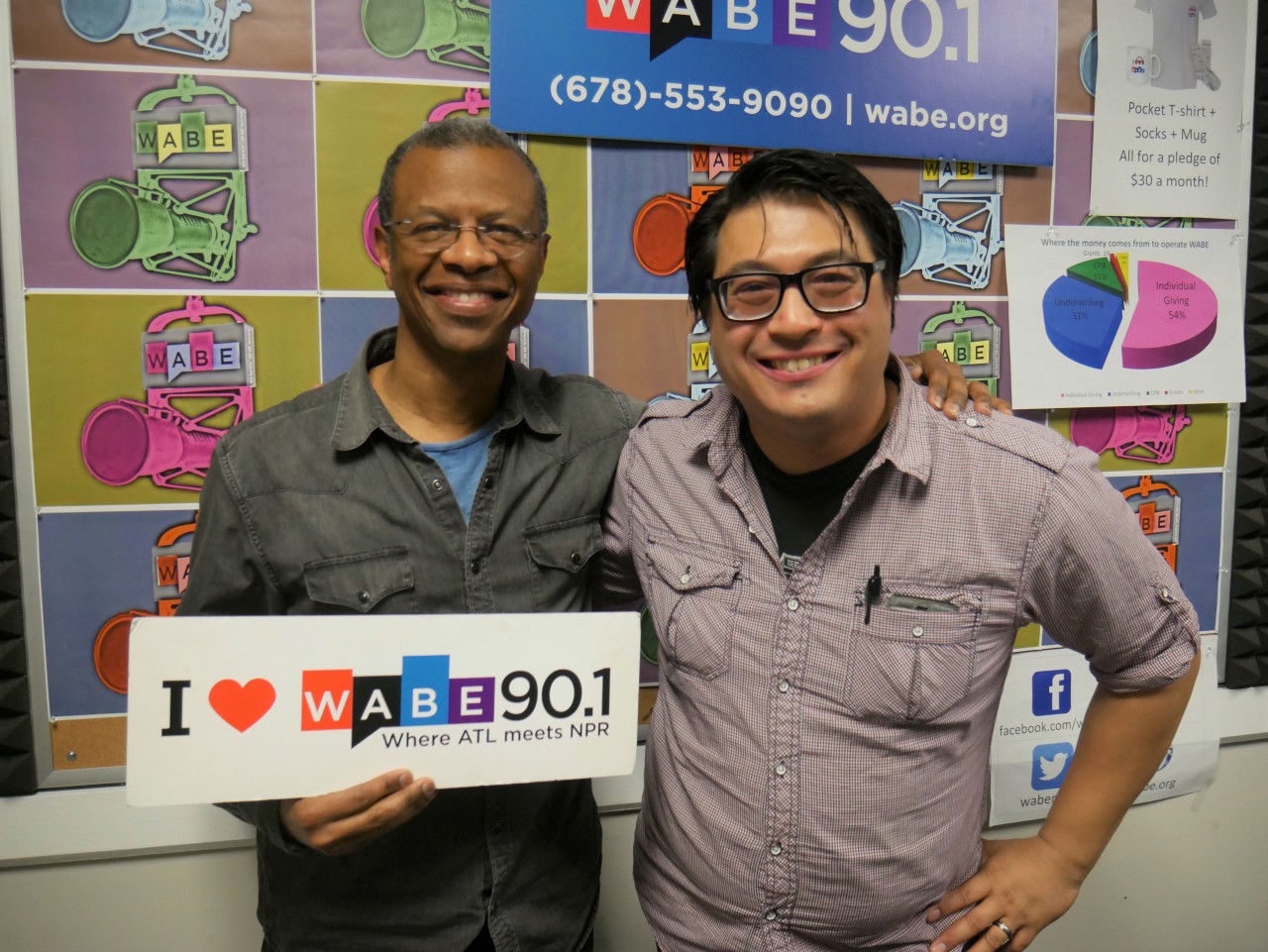Actor Phil LaMarr And His Many Voices Appearing At Dad’s Garage

Phil LaMarr is in Atlanta this weekend for a series of improv comedy shows at Dad’s Garage.
Summer Evans / WABE
If you’ve watched cartoons any time in the last two decades, chances are excellent that you’ve heard Phil LaMarr’s voice. His many credits include voice work for Futurama, Family Guy, Teenage Mutant Ninja Turtles, Samurai Jack, and the Justice League.
Close to Atlanta’s heart, he’s a voice on the Pete the Cat animated series. He was in the original cast of Fox’s “Mad TV” and he met an extremely gruesome end as the character of Marvin in the movie “Pulp Fiction.”
LaMarr is in Atlanta this weekend for a series of improv comedy shows at Dad’s Garage. His own improv bona fides are impressive: after graduating from Yale University, he joined the Groundlings, a Los Angeles improvisation and sketch comedy theater which boasts alma mater including Will Ferrell, Maya Rudolph, and Phil Hartman.
He studied improv at Chicago’s Second City, as well as under Del Close, a writer and acting coach who is widely considered a primary influence on modern improvised theatre.
“Which in improv terms is like ‘You had a seat at the Last Supper?’” LaMarr jokes with “City Lights” producer Myke Johns. “Yeah. I only had the sides, but I was there.”
His extensive voice work in both cartoons and video games came later, but the seed was planted when, as a junior in high school, LaMarr was cast as a voice on the “Mister T” Saturday morning cartoon in 1983.
“I grew up in LA,” he explains, “and a close friend of my mother, Phyllis Tucker Jackson, was an executive at NBC and the highest ranking executive in television at the time. But she knew I did plays, and she said ‘We’re using real kids, do you want to come and audition?”
“I got the part and got my union card and it was a professional job,” LaMarr says, “but I didn’t really realize what it was that I had. It was basically like ‘I got a cool summer job!’”
That summer job has grown into an extensive and varied career in television and film. But LaMarr still makes time for improv with a group made up of fellow Groundlings called The Black Version, a company of actors of color which riffs on movies and pop culture.
“Improv is my foundation,” he says, “and it allows you to never forget that it’s play. Because especially once you start pursuing acting as a career you can forget that you do it because it’s fun. I always have that to go back to.”








